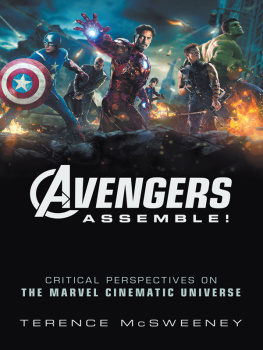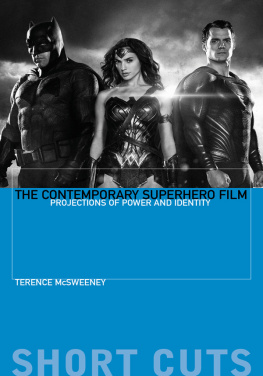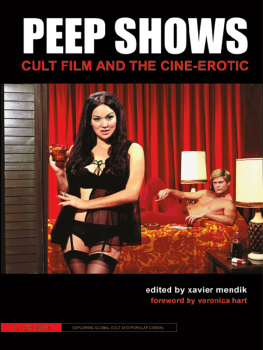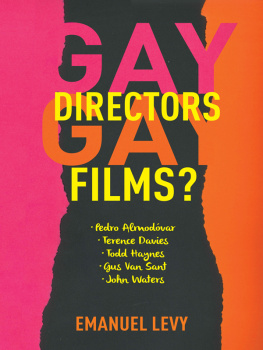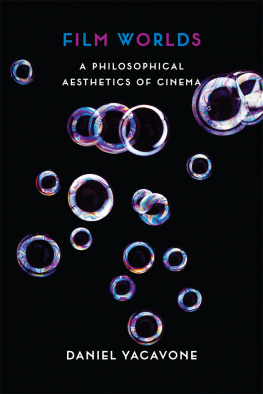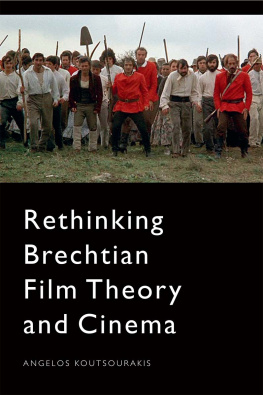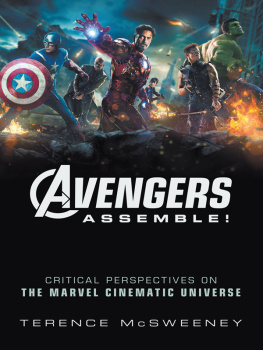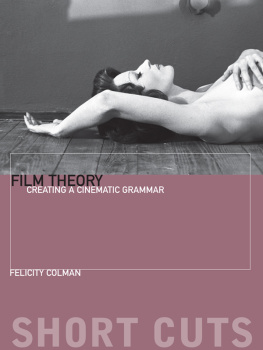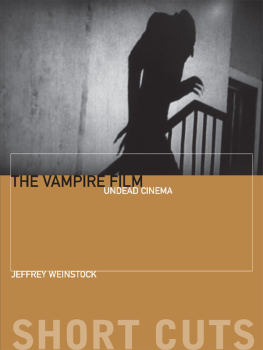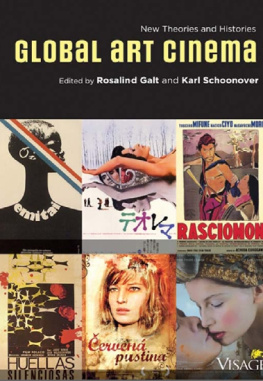Table of Contents
AVENGERS ASSEMBLE!
AVENGERS ASSEMBLE!
CRITICAL PERSPECTIVES ON THE MARVEL CINEMATIC UNIVERSE
TERENCE McSWEENEY
A Wallflower Book
Published by
Columbia University Press
Publishers Since 1893
New York Chichester, West Sussex
cup.columbia.edu
Copyright 2018 Columbia University Press
All rights reserved
E-ISBN 978-0-231-85122-0
Wallflower Press is a registered trademark of Columbia University Press
Cataloging-in-Publication Data is available from the Library of Congress
ISBN 978-0-231-18624-7 (cloth)
ISBN 978-0-231-18625-4 (pbk.)
ISBN 978-0-231-85122-0 (e-book)
A Columbia University Press E-book.
CUP would be pleased to hear about your reading experience with this e-book at .
Cover image:
The Avengers (2012) Walt Disney Studios Motion Pictures
CONTENTS
Every project presents its own unique set of challenges and this one has been no different. The words on the page are mine, but they would not have found their way there without the help and support of too many people to mention here.
I would like to thank the wonderful staff and students at my own institution, Southampton Solent University, especially Donna Peberdy and Darren Kerr, for their continued support, and Stuart Joy who has always been a source of wise counsel. Also, the staff of two remarkable libraries: the Vere Harmsworth Library at the University of Oxfords Rothermere American Institute where some of the writing of this manuscript was done during my tenure as Visiting Research Fellow in 201516, and those at the Queen Mary University of London where I was fortunate enough to have a similar position in 201617.
Special thanks are always reserved for my family, not just my loving wife, Olga, but my two beloved sons. Harrison: your love of writing, even from such a young age (I Hate Shark!), has always moved me and I look forward to seeing the writer you will become in the future. Wyatt: your unconditional love of superheroes has been inspirational and I hope one day you might read this book and remember the golden years during which it was written. I wish they could have lasted forever.
Dedicated to Lewis, Billy, Jimmy, Harrison, Wyatt and Nancy Lou
The only real superheroes
Due to the fact that superheroes have been perpetually subject to revisionism, they become symptomatic signifiers of contemporary consciousness and thus can serve as embodiments of specific needs in a given time.
Johannes Schlegel and Frank Habermann (2011: 334)
People need dramatic examples to shake them out of apathy and I cant do that as Bruce Wayne. As a man, Im flesh and blood, I can be ignored, I can be destroyed; but as a symbolas a symbol I can be incorruptibleI can be everlasting
Bruce Wayne, Batman Begins (2005)
The image of the superhero is now one of the most pervasive in contemporary global popular culture: whether we like it or not, it is they that serve as examples for our children, who play with their likenesses and aspire to be them, it is their imposing personages we use as a barometer to measure our real-world figures and even ourselves by, and it is films about them which fill multiplexes all over the world, topping the box office from Argentina to Zimbabwe. It does not matter whether we call this phenomenon a resurgence (Chermak et al. 2003: 11) or a renaissance (Greene and Roddy 2015: 2) or describe their return as leading to a superhero decade (see Gray and Kaklamanidou 2011: 1) or a cultural catastrophe, as renowned graphic novelist Alan Moore suggested (qtd. in Flood 2014) it is here.
Since around the year 2000 there have been hundreds of superhero films and television shows produced all around the globe, but it is undoubtedly their American incarnation that has emerged as the most prominent, the most successful and the most influential example of the form. Selecting almost any summer at random in the last ten years allows us to see the substantial impact the genre has had on the marketplace: 2008, the date of the first MCU films, Iron Man and The Incredible Hulk, also saw the release of The Dark Knight, Hancock, Hellboy II: The Golden Army, Punisher: War Zone and Wanted, to name just a few. Three of them, The Dark Knight, Iron Man and Hancock, were in the top ten grossing films of the year. Eight years later in 2016 the genre showed no sign of losing its popularity, despite many predicting that market saturation would have an impact on its appeal (see McMillan 2014; Khatchatourian 2015), and four of the highest grossing films worldwide were from the superhero genre: Captain America: Civil War, Deadpool, Batman v Superman: Dawn of Justice and Suicide Squad, with Doctor Strange and X-Men: Apocalypse appearing just outside the top ten. The combined international gross of just these six American superhero films alone totalled almost $5 billion dollars.
It was certainly not always like this. While superheroes have been on the cultural landscape since Superman (who made his debut in June 1938), Batman (May 1939) and Captain America (March 1941) first graced the pages of their respective comic books, and had periodically reached the television and cinema screens in the subsequent decades, the three Salkind-era Superman films (1978 1983) and the Burton/Schumacher-era incarnation of Batman (19891992; 19951997), culturally and commercially impactful on their release though they were, did not inspire the veritable wave of additions to the genre the likes of which we are currently experiencing. Throughout the 1980s until the phenomenal success of Batman (1989) only one other superhero film made it into the top ten US domestic box office, Superman II (1981), and in the whole of the 1990s a superhero film only appeared in the top ten three times and never in the top five: Teenage Mutant Ninja Turtles (1990), Batman Returns (1992) and Batman Forever (1995). Yet the first decades of the new millennium have seen a proliferation of superhero films and television shows like never before.
Why then has the superhero genre, which, it should be noted, is one of the only truly American film genres, alongside the gangster film and the western, re-emerged so emphatically in recent years? The answer to this question is a complicated one which requires an interrogation of technological, industrial, economic and ideological perspectives. In short, as the title to this prologue suggests, the superhero film returned because

